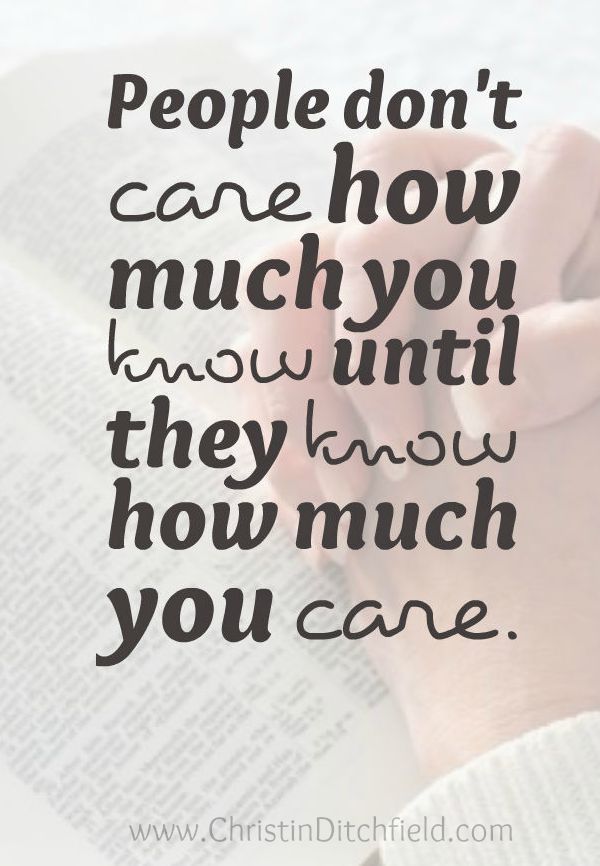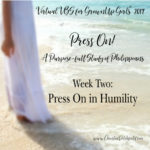Churches were doing lots of studies on personality types and spiritual gifts, and I was off-the-charts “justice-oriented” vs. “mercy” or “goal-oriented” vs. “people-oriented” or whatever the term for “black-and-white thinker / prophet / exhorter / teacher.”
Which is great if God has, in fact, called you to be a Bible teacher, a writer, a speaker. You have to believe in right and wrong, absolute truth. You have to love the study of His Word (theology). You have to be discerning, you have to question, you have to know what you believe and why – and then when you know, commit yourself to it fully.
And I did.
But being young and full of zeal, I also had a fair amount of pride and self-righteousness. I shook my head over some passages of Scripture, incredulous at the sinfulness and rebelliousness of God’s people.
I was born too late to protest any of those cultural issues that were so protestable in the 60s and 70s. But I loved to protest the culture of hypocrisy, apathy, and complacency in the Church – which I knew from the inside out, because I was practically born on a pew.
I could identify these and other issues (like flawed logic, faulty thinking, lack of faith, unsound doctrine, misunderstanding or misapplication of Scripture, ignorance of history) with lightning speed.
I was quick to point out these things whenever and wherever I saw them, and I genuinely meant to be helpful. (If you don’t know what’s wrong, you can’t fix it, right?) So I genuinely expected people to be grateful.
I’m laughing now as I write this… laughing and cringing.

I had to learn from a lot of really painful experiences, that first and foremost it’s the Holy Spirit’s job to convict others of sin or error. Not mine, not yours. Nothing anyone else says or does can change another’s heart, unless they have been made ready by Him. NO ONE has ever been argued into the Kingdom of Heaven. Argued into genuine repentance. Argued into a love relationship with Jesus.
I also learned that when God has called you to speak His truth into someone’s life (or a bunch of someones’ lives) – the only way you can truly be effective is to let them know that you care about them. They have to feel loved and accepted and understood, not condescended to, condemned, or attacked.
So while I was still in my teens, I began to pray that God would give me the compassion, the tenderness, the mercy that I was sorely lacking. I prayed that He would pass on my grandmother’s mantle to me – that He would give me a double-portion of the gift He had given her, the gift of mercy. Nana had such a way of making others feel loved unconditionally.
I didn’t know He would answer that prayer by humbling me continually. By allowing me to struggle and stumble and fall flat on my face so many times, that I would come to understand how desperately I needed His grace and mercy. That I would feel so miserable, so low, so unloveable, so unworthy, that the only hope I could find in Scripture was that “He remembers that we are dust…” (Psalm 103:14) For the first time in my life, I’d identify with the prodigal son, as well as the elder brother.
It didn’t change my passion for the truth. But it helped me express it with so much more humility and sensitivity. Later it would help me speak and write and counsel others with more compassion, more tenderness, more mercy.
And I was growing up and getting older and having so many more life experiences. I lived in different cities and states. I traveled. I met thousands of people and listened to their life stories. I read articles, books, and blog posts, listened to radio broadcasts, watched biographies, documentaries, and news on TV. I went back to school and got two degrees in Biblical Theology. And guess what?
I learned I was wrong about some things.
Shocking, I know.
And even more humbling.
Some of the truths I was so sure of as a teen turned out not to be true after all. And others – well, I heard many different sides to these stories now. Different (and sincere) opinions as to how the same facts could be interpreted.
I learned that while there’s still such a thing as absolute truth, most of life is not as black and white as it seems. There’s a lot of complexity. Aggravating factors, extenuating circumstances. And taking these things into account is Biblical.
I found that there were things — or more accurately, people – I could not neatly categorize as right or wrong, in or out, Christian or not – based on their behavior or their doctrinal beliefs.
One day it dawned on me: I didn’t have to. Jesus knows who’s His and who isn’t. He knows what counts as a genuine profession of faith and what doesn’t. He knows what “fruit” is an indicator of spiritual immaturity from someone who still has some growing up to do (don’t we all?) – and what’s a sign of insincerity or apostasy.
Yes, I’m cautious about wolves in sheep’s clothing. Yes, I’m careful not to embrace false teaching. But I don’t ever want to become one of these “heresy hunters” I’ve seen popping up all over the internet lately, modern-day Sauls, stoning other Christians, and expecting God to pat them on the back for it.
Do we really — as Christians — have so many friends these days, that we can afford to be taking shots at each other?
It makes me sick to my stomach, (I think) in the same way some war veterans feel about reliving their “glory days.” The ones that say, “I have no taste for war, sonny. I waged enough of it. There’s nothing glorious about it. It only leaves carnage and heartache and misery in its wake.”
Sadly, I’ve been there, done that. God, forgive me.
These days, I like to think I’m still the woman God created me to be – passionate (even zealous) for truth and righteousness, loving sound doctrine and theology, committed to living it, teaching it, writing it, speaking it. I still believe some things are black and white, but I’m not afraid to acknowledge that some are gray – and to say about those things, “I don’t know. All we can do is the best we can with the light we have. Try to honor God, trust Him to lead us, to see our hearts, and forgive us if we get it wrong.”
I still think in terms of principles, right or wrong. But I hope I share them with a lot more grace and mercy. I hope the people I minister to sense the true compassion and tenderness in my heart toward them.
I don’t feel it necessary to judge, condemn, or criticize (especially) other Christians who interpret the Scripture differently. I talk to them, listen to them, read their books… and on occasion, worship with them. Because when I do, I learn something.
I may learn something that enriches me, encourages me, or helps me to see things in a new way. Or l may learn I’ve been wrong about something! Then again, I may be reminded why I believe as I do — and not as they. Which is important, too.
Sometimes I just learn to understand others better – where they’ve come from, what and how they think, and why. And that can be the best lesson of all.
Because understanding is key to open, honest communication and relationship-building – which is how you reach people with the truth.
Not arguing.

*Just to be clear, I’m not opposed to healthy, robust conversation among mature believers who debate with each other “as iron sharpening iron” — for purpose of coming to greater understanding, or to academic or political debate.






